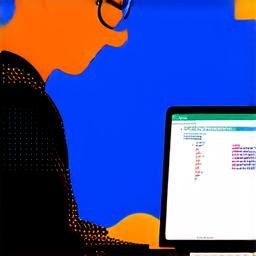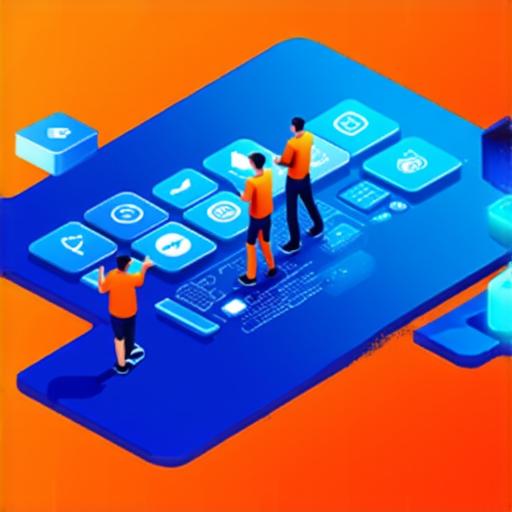Are you an aspiring Android app developer looking to make your mark in the tech industry? If so, you’re in luck! With the ever-growing demand for mobile applications, there has never been a better time to hone your skills and start building. But with so many different skills and technologies out there, it can be hard to know where to begin.
Coding Proficiency: The Foundation of Success
The first and foremost essential skill for any Android app developer is coding proficiency. Without the ability to write clean, efficient, and well-documented code, your apps will never be able to live up to their full potential.
Java is the primary programming language used for developing Android applications. It’s a high-level, object-oriented language that is both easy to learn and use. However, it’s also a powerful tool that can be used to build complex, feature-rich apps with ease.
In addition to Java, Android developers should also have a strong understanding of other key programming languages such as C++ and Kotlin. These languages are often used in conjunction with Java to improve performance and efficiency, especially for more demanding tasks such as gaming or 3D rendering.
Design Expertise: Creating Apps that Stand Out
While coding proficiency is essential, it’s not the only thing that matters when it comes to Android app development. Design expertise is also crucial for creating apps that stand out from the competition and provide a seamless user experience.
Good design principles include using intuitive navigation, keeping things simple and clean, and making sure that your app is easy to use and understand. It’s also important to keep up with current design trends and best practices in order to stay ahead of the curve.

User Experience: The Key to Success
At the end of the day, the success of an Android app depends on its user experience (UX). If your app is difficult to use, buggy, or simply doesn’t meet the needs of your target audience, it won’t be long before users move on to something else.
To create a successful UX, you need to have a deep understanding of your users and their needs. This includes conducting user research, analyzing user behavior, and iterating on your designs based on feedback and testing.
Debugging and Troubleshooting: Keeping Your App Running Smoothly
No matter how well-designed or well-coded an app is, there will always be bugs and issues that need to be addressed. As an Android app developer, you need to have a strong understanding of debugging and troubleshooting techniques in order to keep your apps running smoothly.

This includes using tools such as Logcat and Chrome DevTools to diagnose and fix bugs, optimizing code for better performance, and implementing robust error handling mechanisms to prevent crashes and other issues.
Collaboration and Communication: Working with a Team
Android app development is a collaborative effort that requires strong communication and teamwork skills. As an Android app developer, you’ll need to be able to work effectively with designers, project managers, and other developers in order to bring your ideas to life.
This includes using tools such as Git for version control and collaboration, communicating clearly and concisely via email or instant messaging, and being open to feedback and constructive criticism.
Case Studies: Real-World Examples of Successful Android App Development
Example 1: Uber
Uber is one of the most successful mobile apps ever created, with over 70 million users worldwide. The key to their success? A seamless user experience and a focus on simplicity and ease of use.
To achieve this, the Uber team used a variety of design principles, including intuitive navigation, a clean and minimalist interface, and easy-to-understand features. They also implemented robust error handling mechanisms to prevent crashes and other issues, ensuring that their app always runs smoothly.
Example 2: Instagram
Instagram is another wildly popular mobile app with over 1 billion users worldwide. What sets Instagram apart from its competitors? A strong focus on visual content and a simple, easy-to-use interface.
To achieve this, the Instagram team used a variety of design principles, including large, high-quality images, intuitive navigation, and easy-to-use features such as filters and captions. They also implemented robust debugging and troubleshooting mechanisms to ensure that their app always runs smoothly, even when dealing with large volumes of user-generated content.
FAQs: Frequently Asked Questions About Android App Development

What programming languages do I need to know to be an Android app developer?
You’ll need to have a strong understanding of Java, which is the primary programming language used for developing Android applications. You should also have experience with other key programming languages such as C++ and Kotlin.
How do I create a successful user experience in my Android app?
To create a successful user experience in your Android app, you need to have a deep understanding of your users and their needs. This includes conducting user research, analyzing user behavior, and iterating on your designs based on feedback and testing.
What tools do I need to develop an Android app?
To develop an Android app, you’ll need a computer with the Android Studio integrated development environment (IDE) installed, as well as a variety of other tools such as design software, debugging tools, and version control systems.
